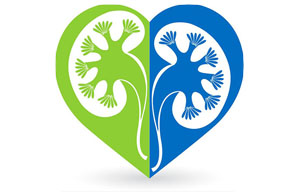Your kidneys regulate your blood pressure, electrolytes and acid-base balance. In addition to this, they also act as your body's natural filter by removing waste products such as urea and ammonia from your blood.
However, kidney cancer and its treatment obviously reduces the ability of your kidneys to perform these tasks. It stands to reason then that one way to ease this burden on your kidneys is to be careful about what you eat.
Follow these six basics of a healthy diet now
A well-balanced diet will help you maintain strength, prevents infections, prevents body tissues from breaking down and helps with their regeneration. Take the time to learn about good nutrition during cancer treatment and consider consulting with a dietitian if you need the additional support.
These dietary adjustments are crucial:
- Eat five to six small meals a day.
- Eat at least five portions of fresh, seasonal fruit and vegetables daily
- Limit your intake of red meat.
- Avoid alcohol.
- Avoid raw or undercooked fish as it might contain parasites or bacteria. ,
- Drink enough fluids – 30ml per kilogram of body weight per day. Aim to make at least 60% of that water.
Control your sodium intake
"In general, eating a diet low in sodium is good for the entire body, including the kidneys," says Professor Michael Herbst of the Cancer Association of South Africa (CANSA). "This is especially recommended in patients who have only one kidney."
One of the reasons for this is that sodium can cause higher levels of calcium to be excreted in your urine, which – when combined with oxalate and phosphorus – can cause kidney stones. The most obvious way to reduce your sodium intake is to stop adding salt or soy sauce to your food. Season instead with herbs, garlic and lemon juice.
"Learning the sodium content of foods can help control sodium intake," advises Herbst. "Food labels provide information about sodium and other nutrients. Keeping a sodium diary can help a person limit sodium intake to 2400mg per day."
Ingredients to avoid:
- Monosodium glutamate (MSG)
- Sodium bicarbonate (baking soda)
- Baking powder
- Disodium phosphate
- Sodium alginate
- Sodium nitrate/nitrite
Foods to avoid:
- Processed frozen foods
- Fast foods
- Cold meats
- Canned soups and vegetables
Avoid oxalates and phosphorus foods
According to Herbst, kidney stones are linked to an increased likelihood of kidney problems, including end-stage renal disease. By avoiding the intake of oxalates and limiting phosphorus-rich foods, you reduce the risk of kidney stone formation.
Oxalate-rich plants and foods: sorrel, rhubarb, buckwheat, black pepper, parsley, poppy seed, spinach, chard, beets, cocoa, chocolates, most nuts, most berries, and black tea.
Phosphorus foods: liver, beans, chocolates, yoghurt, milk and cheese.
Limit your protein intake
When your body breaks down protein, it creates a waste product called urea, which is removed via your kidneys. A high-protein diet can put strain on your already compromised kidneys. CANSA recommends that you limit your protein intake to one gram of protein per kilogram of body weight per day.
For more information, visit the CANSA website or call the helpline on 0800 22 66 22.
IMAGE CREDIT: 123rf.com

